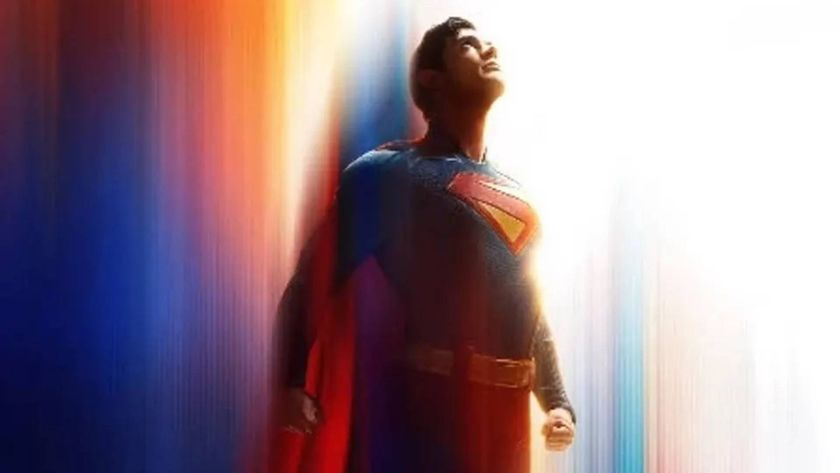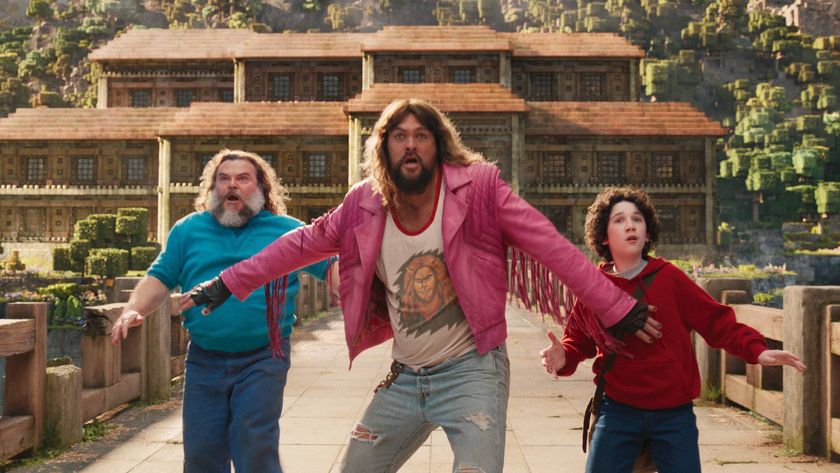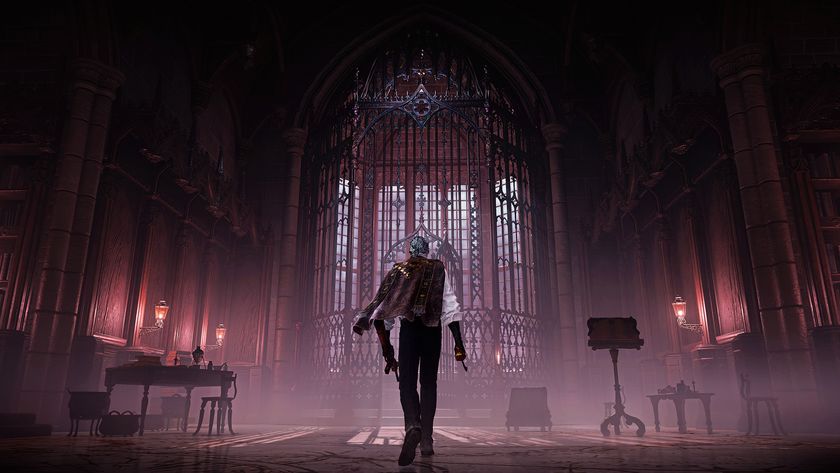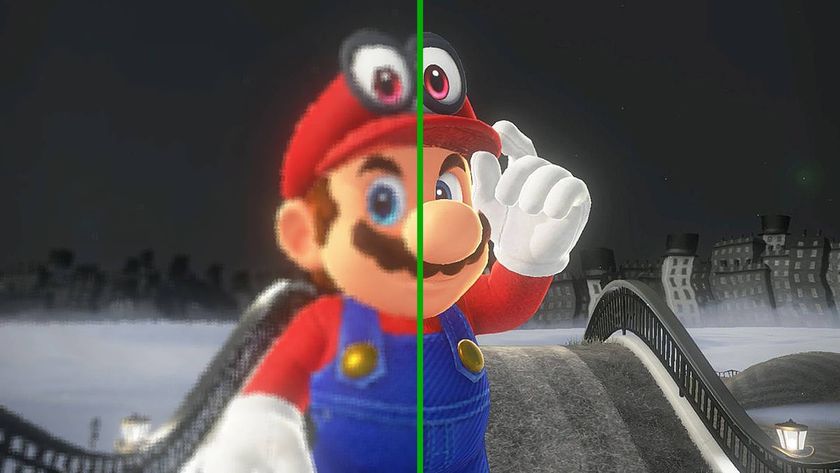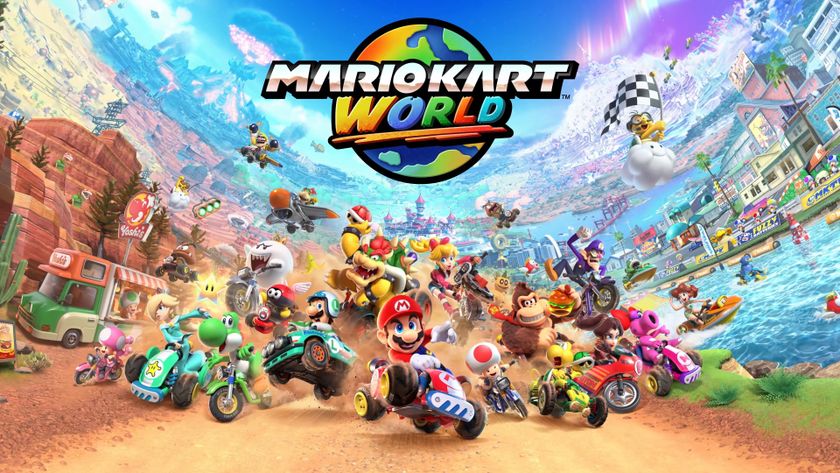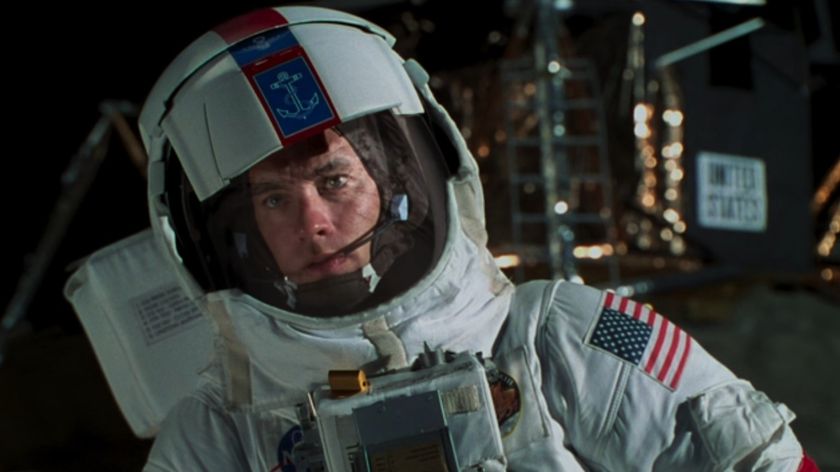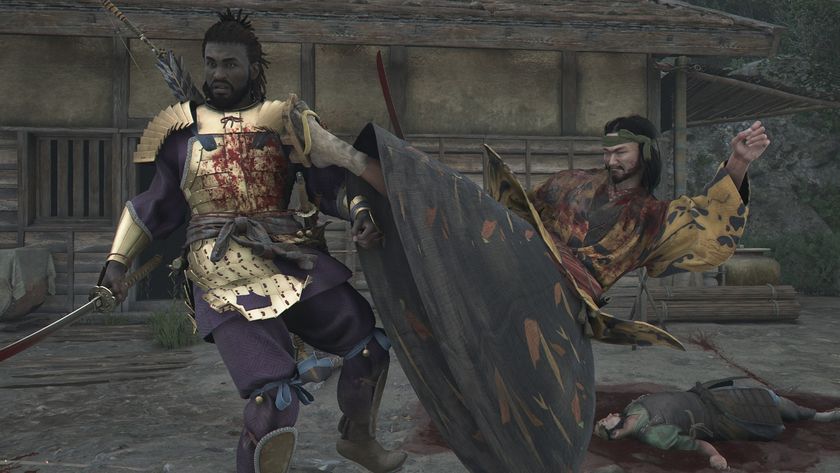Ad Astra director James Gray interview: on the movie industry, Apocalypse Now comparisons, and why Twitter reactions are "invariably garbage"
"If you had the talent and made 2001: A Space Odyssey, you shouldn't," Gray says. "It’s 2001, it already exists."
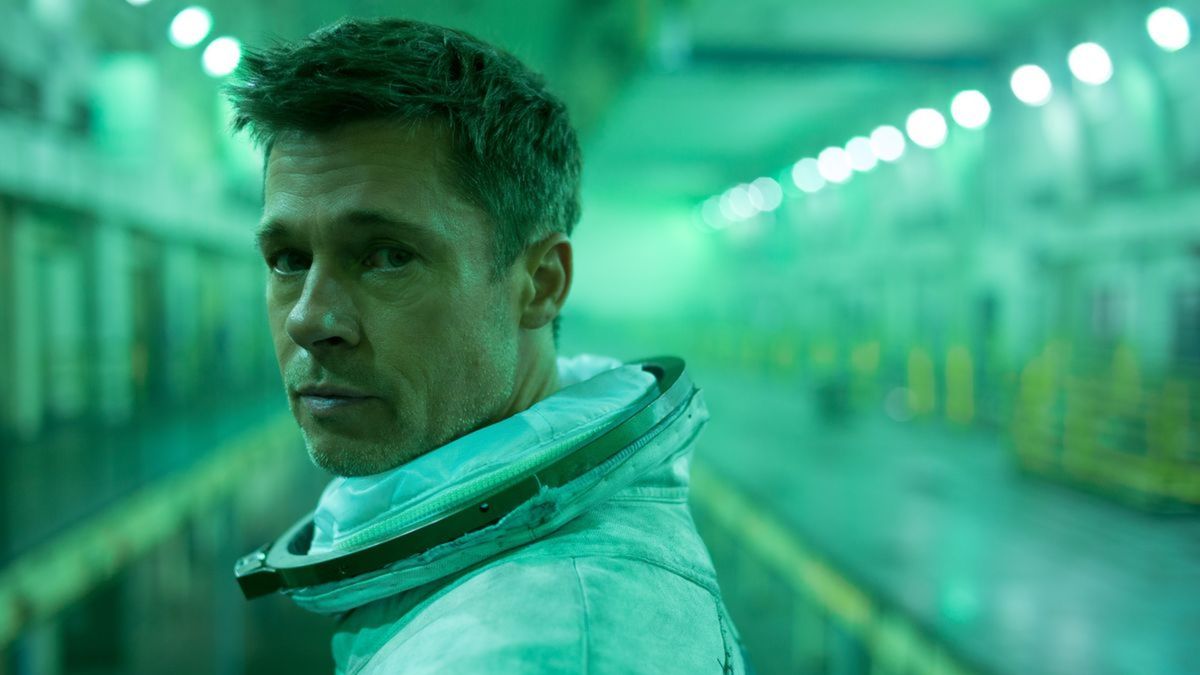
"I don’t have a problem with the Marvel movies, by the way," says director James Gray, whose new movie, the Brad Pitt-starring sci-fi vehicle Ad Astra, reaches UK cinemas today. We're discussing the state of the industry and how mid-budget movies, such as Ad Astra, are a rarity while superhero movies with colossal price tags dominate cinema screens. "Avengers: Endgame was amazing to see with my kids," he continues. "But, I love hamburgers, and if you're only given hamburgers to eat every single day of your life, don’t you eventually say, 'Can I please have some pasta? A dumpling? A salad?' You want something else."
Slouching back into a Soho hotel sofa, Gray does not mince his words, processing every question for a few seconds before delivering answers that fill entire A4 pages. The director, quite rightly, has Hollywood's A-list queuing up to work with him (Gray's previous movies have starred Joaquin Phoenix, Marion Cotillard, Mark Wahlberg, Charlize Theron, Tom Holland, and Robert Pattinson, to name a few). However, despite the critical acclaim poured upon The Lost City of Z, The Immigrant, and The Yards, Gray's work has been overlooked by the Oscars. That should change this year.
Ad Astra centres on Roy (Pitt), an astronaut sent to the outer reaches of our solar system in search of his believed-to-be-dead father (Tommy Lee Jones) who happens to be an international hero. Along the way, Roy encounters space pirates, brutish animals, and deceitful army generals, all while the leading man comes to terms with some deeply rooted daddy issues. The story apes Apocalypse Now, while Gray's vision of mankind's future, a dystopian fever dream that imagines fast-food joints planted on the Moon, borrows from Kubrick's masterpiece 2001: A Space Odyssey. Pitt's name has already been thrown into the Oscar ring, and Ad Astra could very well, if the stars align, pick up a Best Picture nomination.
12DOVE and Total Film sat down with Gray to discuss the movie, touching on the film industry, Netflix, and Twitter reviews before delving into the themes of Ad Astra. Here's our Q&A, edited for length and clarity.
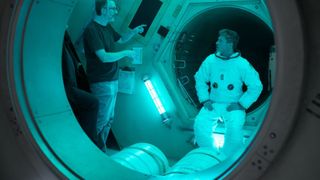
GR: Hi James. The movie was really astonishing.
Gray: You didn't see it at the iMax, did you?
I saw it in the [20th Century] Fox offices near here.
Sign up for the Total Film Newsletter
Bringing all the latest movie news, features, and reviews to your inbox
That's a little bit of a bummer, and please let me tell you why. I'm a film guy, and I saw it mastered in Dolby Vision, and it's fucking incredible. It's laser vision. You know, when we go to the movies, and you can feel the light? In Dolby Vision, it's jet black, so when the title appears it's like it's in the middle of the theatre. I've never seen anything like it. It's almost 3D, except you're not wearing glasses. Because when your eye can't perceive the screen, it sits in the middle of the room itself. It's bizarre. It is really wonderful to see that sort of technology emerging. It gives me new hope for the cinema experience because you’re not going to get that on your television.
How we consume film has changed so much in recent years. Going to the cinema is very, very different to seeing a movie on an aeroplane.
It's funny because I went to the Amazonia for the movie I did before this [Lost City of Z]. It was a really brutal shoot. You're in the jungle and the insects don't want you there, and we had the camera film shipped there by a small plane, which we made the runway for. The plane would fly from the jungle to Bogotá, from Bogotá to Miami, from Miami to LA, LA to London. So you finally finish the film and you're all impressed with yourself. I was on a flight from New York to London and I see it playing on the back of a couple of plane seats. My first reaction was, "Wow, that's amazing, my movie is playing in aeroplane seats." And then I thought, "That’s horrible! My movie's playing in the back of aeroplane seats, on a screen that's [gestures a small square] big and I fucking killed myself making it and now the screen’s that big!"
How would you feel, then, considering that Netflix and other streamers will play your movies at home, about making a movie for Netflix?
I would make a movie for Netflix. I have to say, a few years back, I was very anti-Netflix, but, the truth is, they are the ones taking the risks and making beautiful films. Why wouldn’t you make a movie with people who are taking risks? They play theatrically in the States, and that's fantastic. I don’t know if anyone else would have made Maestro Scorsese’s new film [the Irishman] as I hear the cut is three and a half hours, and that's a risk. We love that, and that’s Netflix. They gave the Maestro creative control.
Now, I'm friends with Chris Nolan, and he would scream at me for saying this, because he believes wholeheartedly in the theatre experience. In some kind of utopian world, I agree with him, and I love him for his dogmatic stance. But, if you're focussed on the initial release of the film, it’s really for yourself. If I asked you, "What were the domestic US grosses for Chinatown?" You couldn’t tell me. I couldn't tell me. The point being, the initial release of the film is for everyone’s ego and for the stockholders. Once that moment passes, the film becomes part of the culture, and everyone is going to watch it on their home screen anyway. So, if we take a longer view, I think we have to come to the conclusion that we support the people who make interesting work.
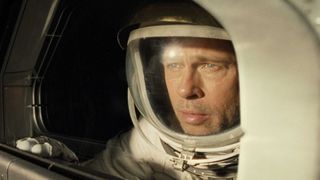
Ad Astra was made on a reported $80 million budget. That’s the sort of mid-budget movie that doesn't get made today.
Never, right? It’s not huge, because huge budgets of $250 million, $300 million are prominent.
Those Marvel blockbusters.
I think Batman v Superman, which is DC and not Marvel, was apparently $300 million. Then there are $400 million films as well. On the other end, there are those movies which are $2 million. The middle budget studio film is kind of over... The middle is beautiful. It’s not middlebrow. The middle is where you have truth and spectacle. You have both. That’s what cinema was and should be. That’s the area that’s still occupied by [studio] Regency Enterprises [who are behind Ad Astra, 12 Years a Slave, The Revenant, Widows]. Thank heavens for them because otherwise there would be nobody. I don’t know the final budget for my movie. I finished on schedule, but not on time schedule because post-production went on forever. That was because the studio [Fox] got bought [Disney purchased Fox while Ad Astra was in post-production] and that was a whole other thing.
This is a Disney movie!
People ask me about that but I say, "It's beyond my pay grade." If you had told me two years ago that my movie would be released by the Walt Disney Company, I would have told you that you were insane. I don’t have a problem with the Marvel movies, by the way. I see them with my children, and my children love them, and we have a great time. Avengers: Endgame was amazing to see with my kids. But, I love hamburgers, and if you’re only given hamburgers to eat every single day of your life, don’t you eventually say, "Can I please have some pasta? A dumpling? A salad?" You want something else. But I think that’s the market now. I have arguments with filmmaking friends who say things are cyclical. But I’m not sure they are. Sometimes a medium runs its course. Look at opera.
From my perspective, it seems that the internet, with streaming, came and broke the cycle.
To your point, I hate to sound like a Luddite, but when you tweet a reaction right after you see a movie… I don’t think Twitter is bad. In fact, I think it’s kinda interesting at times. But the immediate tweeted reaction to a movie is almost invariably garbage. How can you tweet your immediate reaction to Vertigo? Don’t you have to think about it? A little bit? I think the temptation to write things off or to overpraise is huge through Twitter. And I don’t think that gives us room for introspection or contemplation. I don’t know if the internet is a good thing in the end. It gives people a lot of room to vent their anger…
I thank God that I've stopped reading the comments on anything now. My friend sent me something hilarious once. Someone was commenting that I was a "coward" and a "hack" and "awful". Then it was signed "anonymous". Which I thought was so good, because he’s calling me a coward and he’s signing it "anonymous"! The thing is, you realise the world is complex, endlessly so, and with so many voices weighing in. Weirdly, somehow, with all this noise, our focus has become so small.
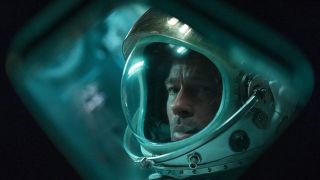
In fairness, the internet reaction has been positive for your film
Oh good, but I, on purpose, don’t read it.
A lot of people have compared the story to Apocalypse Now, and the visuals to 2001. What were your touchstones while making this movie?
I love Apocalypse Now and 2001, but neither of them were the spark for the movie. In 2001, apes touch a black monolith. The only thing it really shares [with Ad Astra] is a desire to look at the near future with an unjaundiced eye. It's not fantasy but science fiction, or perhaps a quasi-science fact. But, if you look at the story, it bears no resemblance. Please don’t misunderstand me, 2001 is in the top five films of all time. But you can’t make 2001. Forget my lack of talent compared to Kubrick. If you had the talent and made 2001, you shouldn't. It’s 2001, it already exists. In that movie, Kubrick talks about aliens. Are they good or bad? But we wanted to do the opposite and say, "There’s nothing out there, human beings are all we’ve got. Don't look out there for false Gods. Little green men won’t come here to save us."
As for Apocalypse, I see more of a debt. In that case, my [co-writer] Ethan [Gross] and I were trying to do Homer's Odyssey – which sounds pretentious as hell, but it’s how you always start – we were trying to do the Odyssey from [Odysseus's son] Telemachus’s point of view. We were trying to do something almost mythic, almost Campbellian [refereing to Joseph Campbell, the author of The Hero with a Thousand Face]. When you see Apocalypse, John Milius, who wrote Apocalypse until Francis [Ford Coppola, the movie's director] re-wrote it, they wrote something very Campbellian. Coppola and [George] Lucas were very much into Joseph Campbell in the late '60s. Additionally, what really draws the films together is the voice over. In Apocalypse, it’s a reminiscence, but [in Ad Astra] it’s a contemporary thing.
While the movie takes a pessimistic view on life in outer space, there’s a certain earnestness to Ad Astra – it's asking you to celebrate all that’s around you on earth.
It sounds corny when you say it like that, but isn’t it true? There may well be alien life, but we've been sending signals out there since the '60s and we haven’t heard anything. There's a term for it, the "Fermi paradox" – why the silence if alien life is abundant? Well, it means we can’t communicate with it. And, if we can’t communicate with it, and we can’t reach it in our lifespan, then what the hell use is it? For all intents and purposes, it doesn’t matter if there are people on planet RU72V98 or whatever, 200 light-years from home. Who cares? You can't communicate with it because it’s too far away. So what’s the answer? It’s not in being alone. It's not in communication. It's in seeing a Praying Mantis on a leaf that my son will show me. Finding beauty in life thanks to your wife and children. As corny as that sounds, isn’t that all that we have? What else is there? It seems that anything else is a fantasy bullshit projection where you can get lost in it. It’s a distraction. I kind of like human beings, even though we’re flawed and screwed up. I’m happy to be a person.
Ad Astra is in cinemas now.

Jack Shepherd is the former Senior Entertainment Editor of GamesRadar. Jack used to work at The Independent as a general culture writer before specializing in TV and film for the likes of GR+, Total Film, SFX, and others. You can now find Jack working as a freelance journalist and editor.
